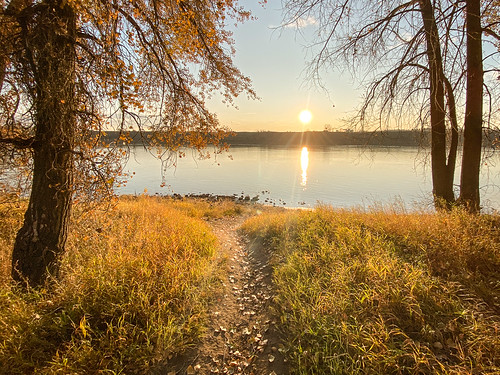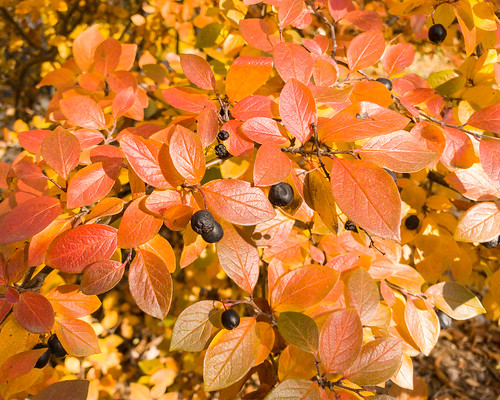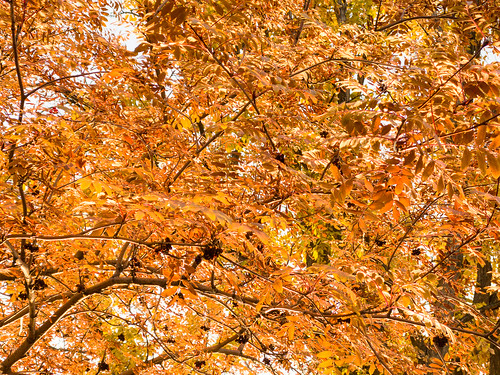Last of the Right Whales premieres at the Calgary International Film Fest Sept. 26. It will be available online from Sept 27-Oct 3 in Alberta, Saskatchewan, and Manitoba.
The Wildlife Rescue Society of Saskatchewan is holding an online information session for rescue and transport volunteers at 2 pm, Oct. 2.
Library of Things, Saskatoon, will be open for pick-ups by reservation from 1-4 pm, Oct. 2.
City of Saskatoon residents can dispose of household hazardous waste from 9 am to 3:30 pm, Oct. 3.
Saskatoon’s Energy Management Task Force is offering an online update on DEEP from 7:30-9:15 am, Oct. 6.
The Johnson-Shoyama Graduate School of Public Policy is hosting a video conference on measuring greenhouse gas sources and sinks in the Canadian Prairies crop sector from 12-12:55 pm, Oct. 7. Register to participate.
Looking Ahead
The Saskatchewan Waste Reduction Council is hosting repair cafés in Regina, Saskatoon, and online from 10 am-2 pm, Oct. 23. You’re encouraged to book an appointment for both live and virtual events.
Full details on all upcoming events can be found on the EcoFriendly Sask Calendar
Great news - and well deserved! Wild About Saskatoon: NatureCity Experience is a finalist for a national Community Action Award from the National Museum of Nature.
This article counters the current arguments in favour of grass-raised beef from a cost, scale, and environmental impact perspective. The article states, “Regenerative ranching begins with the assumption that cattle must be commercially ranched and then backfills an ecological narrative to sustain that assumption.” [The New Republic]
A joint City/University research study has found a wide range of pharmaceuticals and chemicals in Saskatoon’s wastewater. “The levels we have measured are not high enough to be likely to acutely impact aquatic organisms living in the river. But that does not mean that there are no chronic, long-term implications that might manifest over longer time scales.” [CTV News]
Urban Coyote, a poem by Glen Sorestad. [This Singing Land kanikamot askiy]
Healthy People, Healthy Environment
A new report states that climate change is a threat to public health as well as the environment and the economy. It will affect everyone but not equally, depending on factors such as age, access to health care, and economic disadvantages. [Canadian Institute for Climate Choices]
The 3-30-300 rule is designed to create equitable access to urban forests, addressing air pollution and urban heat islands. A few communities, such as Saanich in BC, have adopted the rule which calls for every resident to be able to see at least 3 decent-sized trees from their home, live in neighbourhoods with at least 30% tree canopy cover, and live no more than 300 meters from the nearest public green space. [Nature Canada]
The Sierra Club has endorsed a strong statement opposing “unnecessary and harmful artificial lighting during the day and night.” They provide a comprehensive explanation for their rationale as well as a list of the over 70 references and resources that were consulted in developing the policy. [Sierra Club]
“The production of steel, cement, and ammonia together emit about one-fifth of all human-caused CO2. Technologies are emerging that promise to decarbonize these problem industries, but analysts warn that big challenges remain before the processes can be cleaned up.” [Yale Environment 360]
Planned obsolescence may be good for phone companies but it’s bad for users’ wallets and even worse for the planet, because it encourages people to treat their phones as disposable. No one really knows how much e-waste (electronic refuse) is generated every year, but one recent estimate put it at 53.6m metric tonnes in 2019. [The Guardian]
Book Reviews
Gernot Wagner, author of Geoengineering: The Gamble, says it’s right to be skeptical about solar geoengineering (reflecting solar radiation back into space), but it can’t be ignored as somebody is likely to try it eventually. [Earthbound Report]
“In Hurricane Lizards and Plastic Squid: The Fraught and Fascinating Biology of Climate Change, [Thor] Hanson talks to scientists all over the world about how plants and animals are moving and changing, and why some are inherently better set up for success than others.” [The Revelator]
EcoFriendly Sask supports Saskatchewan environmental initiatives through an online publication, an events calendar, small grants, and the Nature Companion website/app.
You can follow EcoFriendly Sask by liking us on Facebook, following us on Twitter, or subscribing by email (top right corner).



